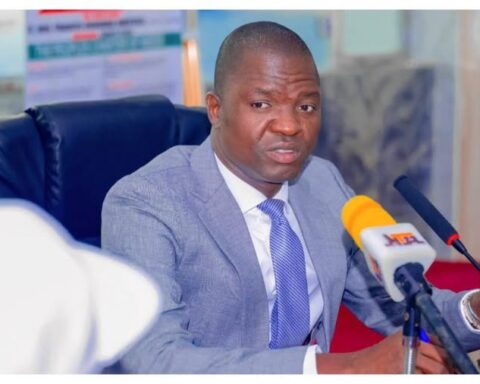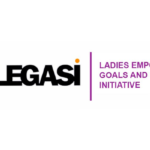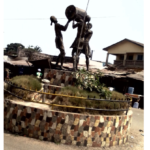By Okeoghene Oghenekaro
Enhancing Nigeria’s infrastructure through Public-Private Partnerships (PPPs) is a key focus of President Bola Tinubu’s Renewed Hope Agenda.
PPP is a collaboration between a government agency and a private-sector company to finance, build, and operate public infrastructure projects
The conceptualisation and implementation of PPPs involves managing both the public and private stakeholders to achieve the desired outcomes.
A 2022 World Bank analysis estimated that Nigeria would need to invest three trillion dollars by 2025 to close its infrastructure gap, as the current infrastructure stock is only 30 per cent of the Gross Domestic Product(GDP)
That was far below the international benchmark of 70 per cent.
In the last two years of Tinubu’s administration, there has been a focus on infrastructure development in areas like transportation, healthcare, energy, ICT, and urban renewal.
Tinubu reaffirmed his administration’s commitment to Public-Private Partnerships (PPP) during the 29th Nigerian Economic Summit in 2023, emphasising the vital role these collaborations play in driving the nation’s growth and development.
“We must work together. I have proven capacity in this regard, as we remember the role of public-private partnerships in the transformation of Lagos State under my leadership.
“We will replicate that across Nigeria with your unwavering support,” the president said.
The Federal Government, through the Infrastructure Concession Regulatory Commission (ICRC), has made substantial strides in infrastructure development in the last two years.
The Lekki Deep Sea Port, the deepest port in West Africa, is now operational, unlocking trade efficiencies, attracting foreign direct investment, and creating over 170,000 direct and indirect jobs.
The Lagos-Ota-Abeokuta and Abuja-Lokoja highways are now under viable PPP arrangements.
The projects include smart tolling, safety systems, and modern rest facilities, as well as improved freight logistics on the Lagos-Ibadan rail corridor, which is reducing logistics costs by over 35 per cent and easing pressure on road networks.
On road infrastructure, the ongoing six-lane 700-kilometre Lagos-Calabar coastal road is designed to enhance connectivity and facilitate trade across eight states: Lagos, Ogun, Ondo, Delta, Bayelsa, Rivers, Akwa Ibom, and Cross River.
Also, the Sokoto-Badagry highway links the Western and Northern parts of the country.
The Keffi-Akwanga-Lafia-Makurdi highway has been commissioned and is operational, while the Benin-Asaba highway has been commissioned under the Highway Development and Management Initiative (HDMI).
The Federal Executive Council (FEC) has approved some projects, which include the Kashimbila Integrated Cargo/Agro-Allied Airport project in Taraba.
Dr Jobson Ewelafor, Director-General, ICRC, said that the project entailed the upgrade of an existing airstrip in Kashimbila into a modern cargo and agro-allied airport, while also integrating over 3,000 hectares of farmland, fish farming facilities, and a ranch for livestock production.
“Implemented under a PPP arrangement, this project is expected to generate over N4.1 trillion in revenue from multiple sources throughout the concession period, while enhancing Nigeria’s agricultural value chain and regional connectivity,” he said.
The FEC also approved several PPP projects during its meeting on May 12, including the MediPool Initiative, which aims to reduce medicine costs and expand access to essential healthcare products nationwide, particularly in underserved areas.
Ewelafor said that the initiative would centralise the procurement and delivery of medicines, vaccines, and consumables across Nigeria.
According to him, PPPs are driving infrastructure delivery across all sectors, ensuring that no Nigerian is left behind.
“Imagine a Nigeria where no child dies due to the unavailability of vaccines, where every health facility, no matter how remote, has access to life-saving drugs.
“MEDIPOOL is just the beginning under President Bola Tinubu’s Renewed Hope Agenda,” ge said.
FEC also approved the Ikere Gorge Hydropower Project in Oyo, which was originally initiated under the Obasanjo military regime, to generate a 6MW small hydroelectric power project, developed through PPP.
The D-G said that the dam would be redeveloped under a Finance-Build-Operate-Transfer (FBOT) which will also provide potable water to towns like Iseyin and Saki, and irrigate thousands of hectares of farmlands.
Also approved was the Federal Coastal Fishery Terminal Borokiri in Rivers, which will boost Nigeria’s fishery value chain through modern cold-chain logistics, job creation, and enhanced export capability.
Other projects approved by FEC under Tinubu’s administration include the NIMASA maritime electronic management system, the Ministry of Interior Optimisation project (E-Verification Gates), and the Guards Management System.
As part of ongoing reforms to strengthen Nigeria’s PPP ecosystem, the ICRC has fast-tracked the streamlining of the PPP Project Delivery Framework, enhancing both the speed and bankability of project execution.
These projects have shown President Tinubu’s commitment to sustained infrastructure development in the country aimed at bridging the infrastructure gap.
Ewalefoh assured that the ICRC would continue to provide regulatory oversight to ensure project transparency, value for money, and full alignment with global PPP standards.
Some stakeholders, however, posit that above feats are yet to translate to visible infrastructure upgrade across the country.
As the Tinubu-led administration crosses its halfway mark kn May 29, Nigerians remain hopeful of faster development kf modern infrastructure for a more comfortable existence.
Follow us on all social media platforms @dailyquery for news and analyses around the globe.



























